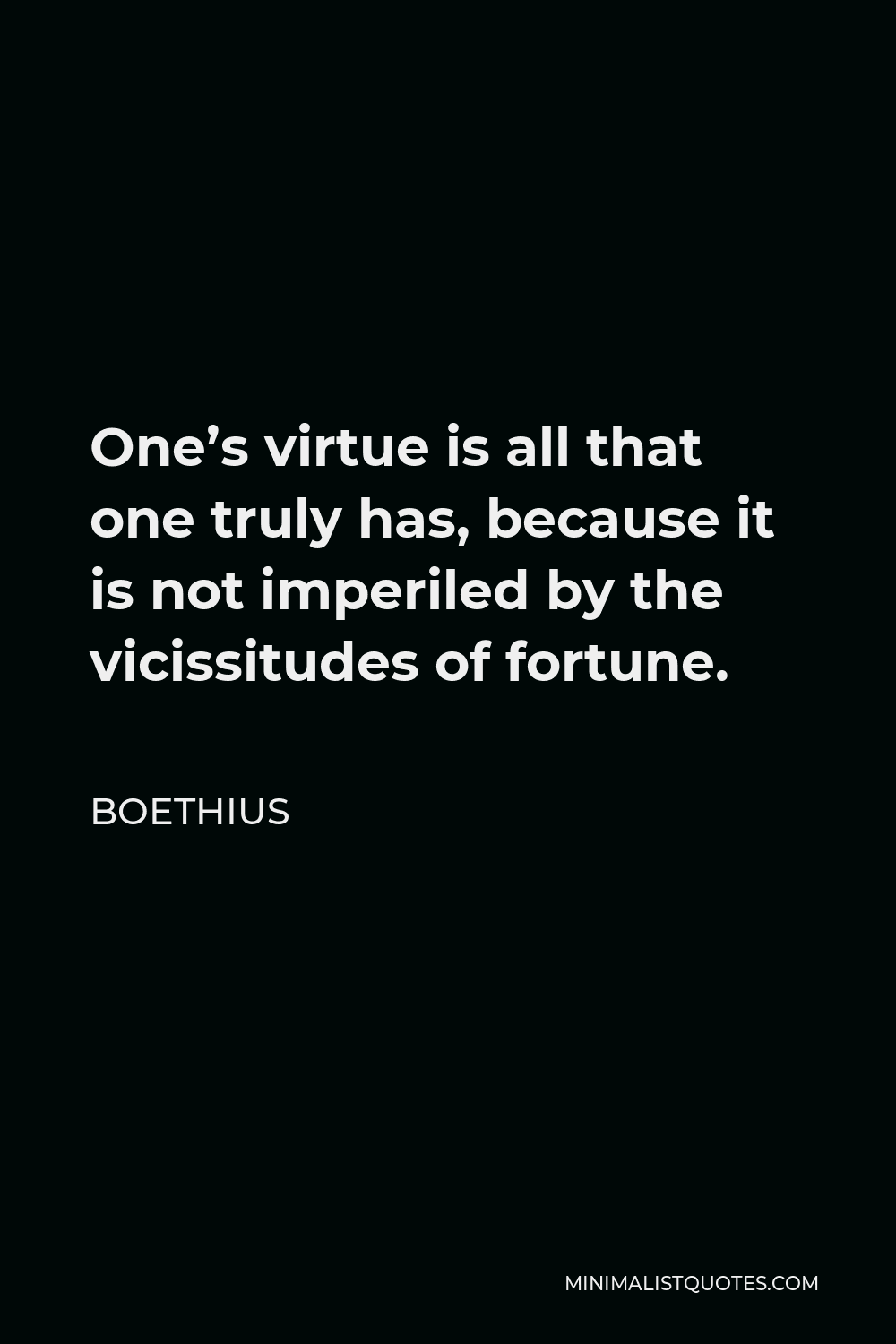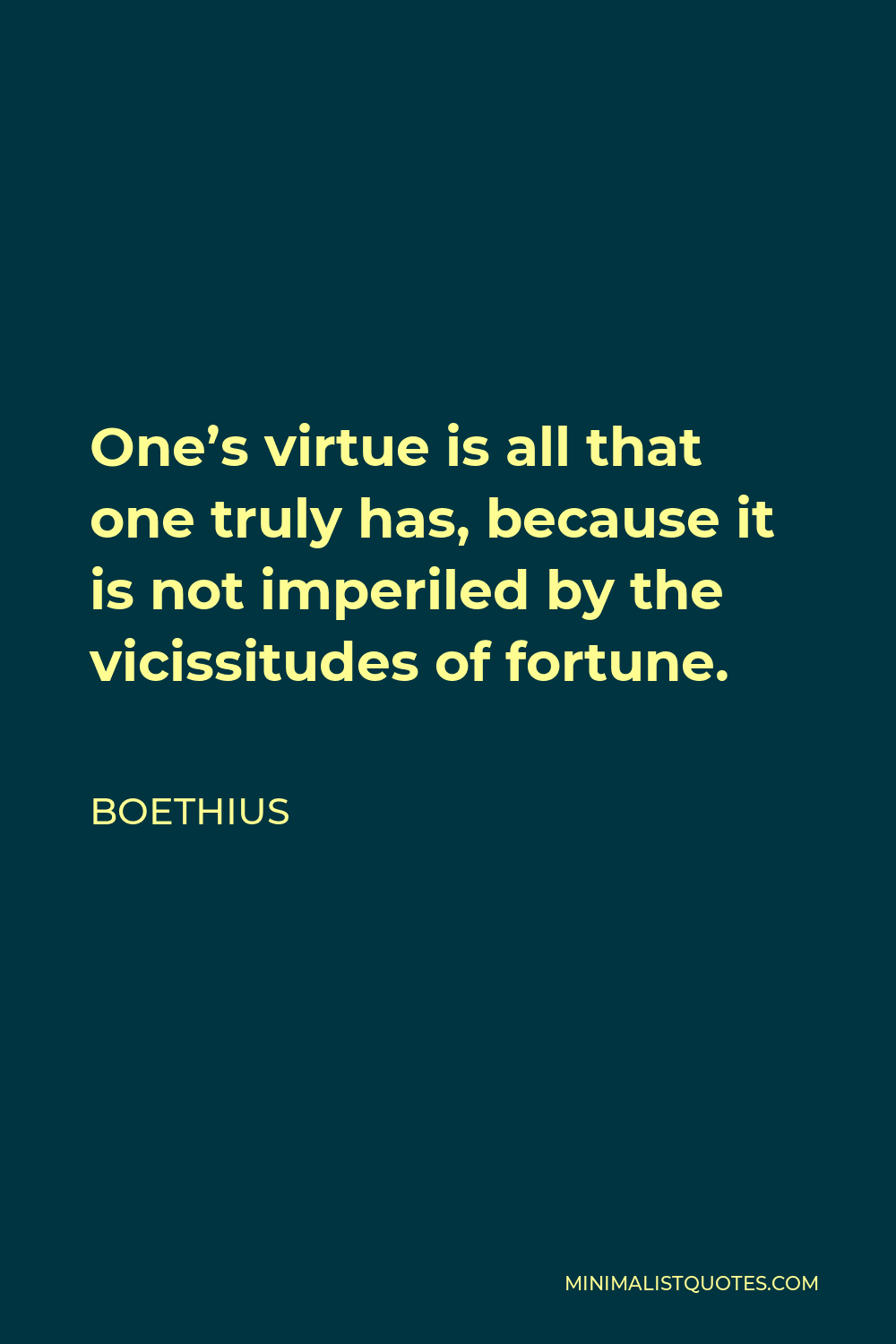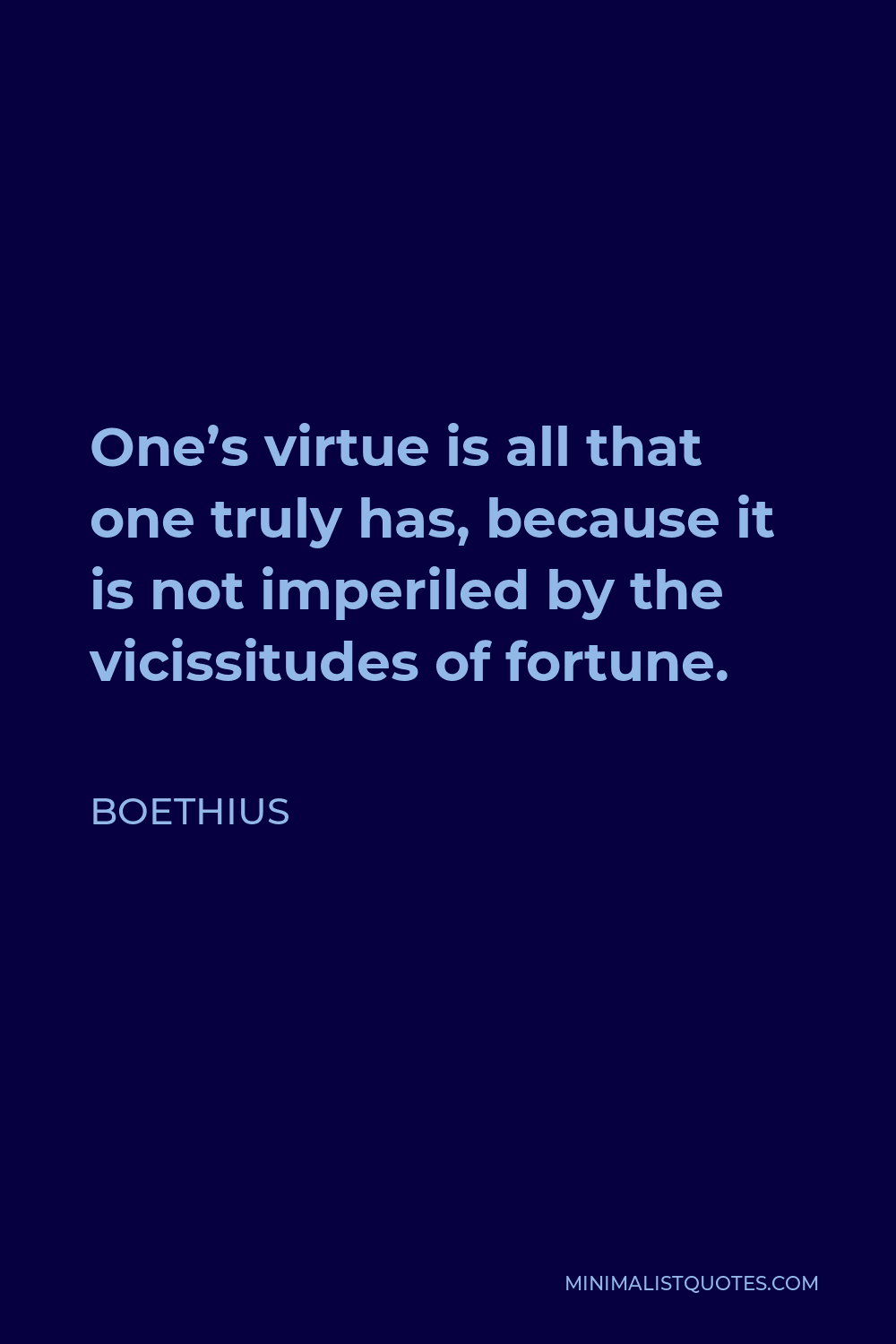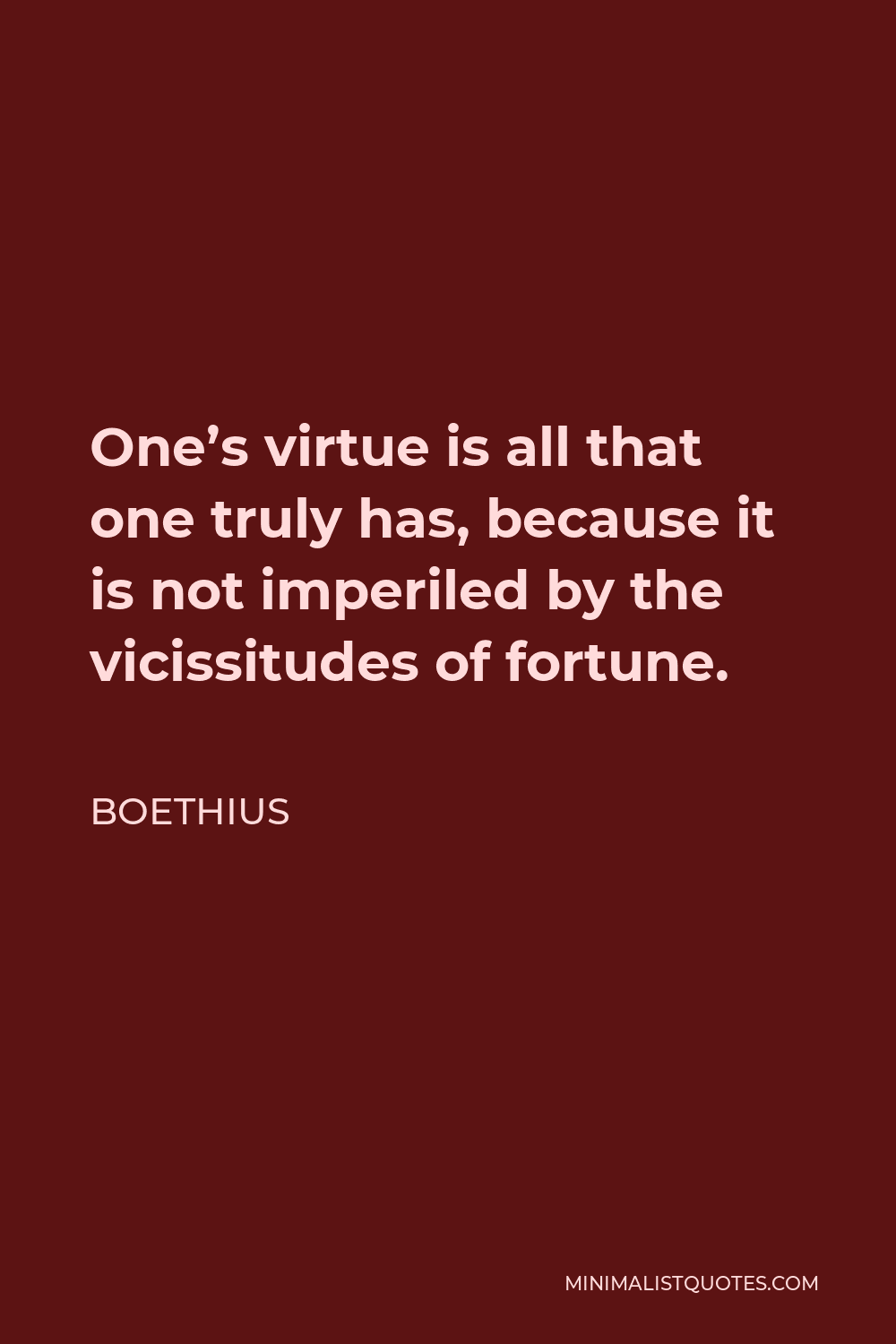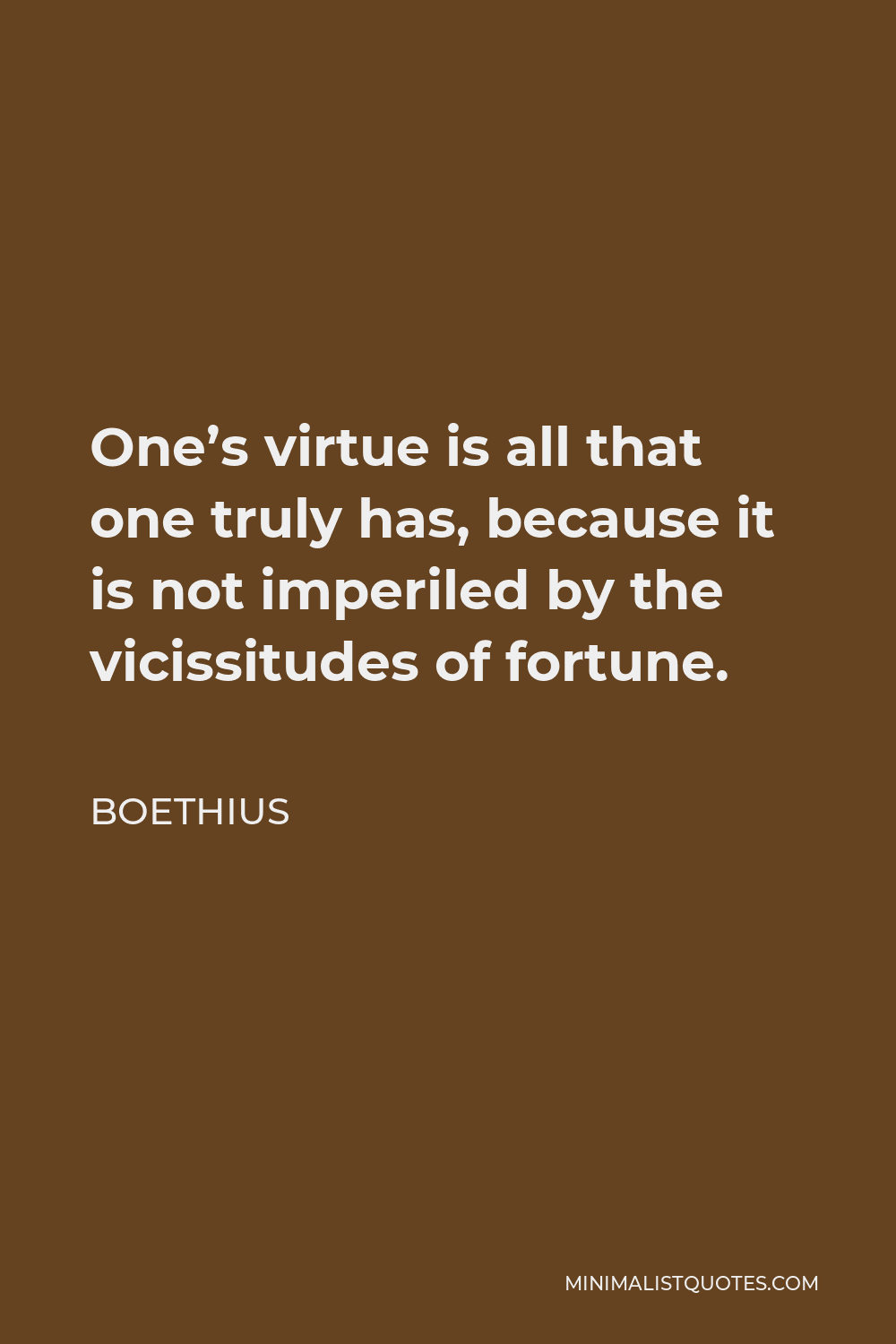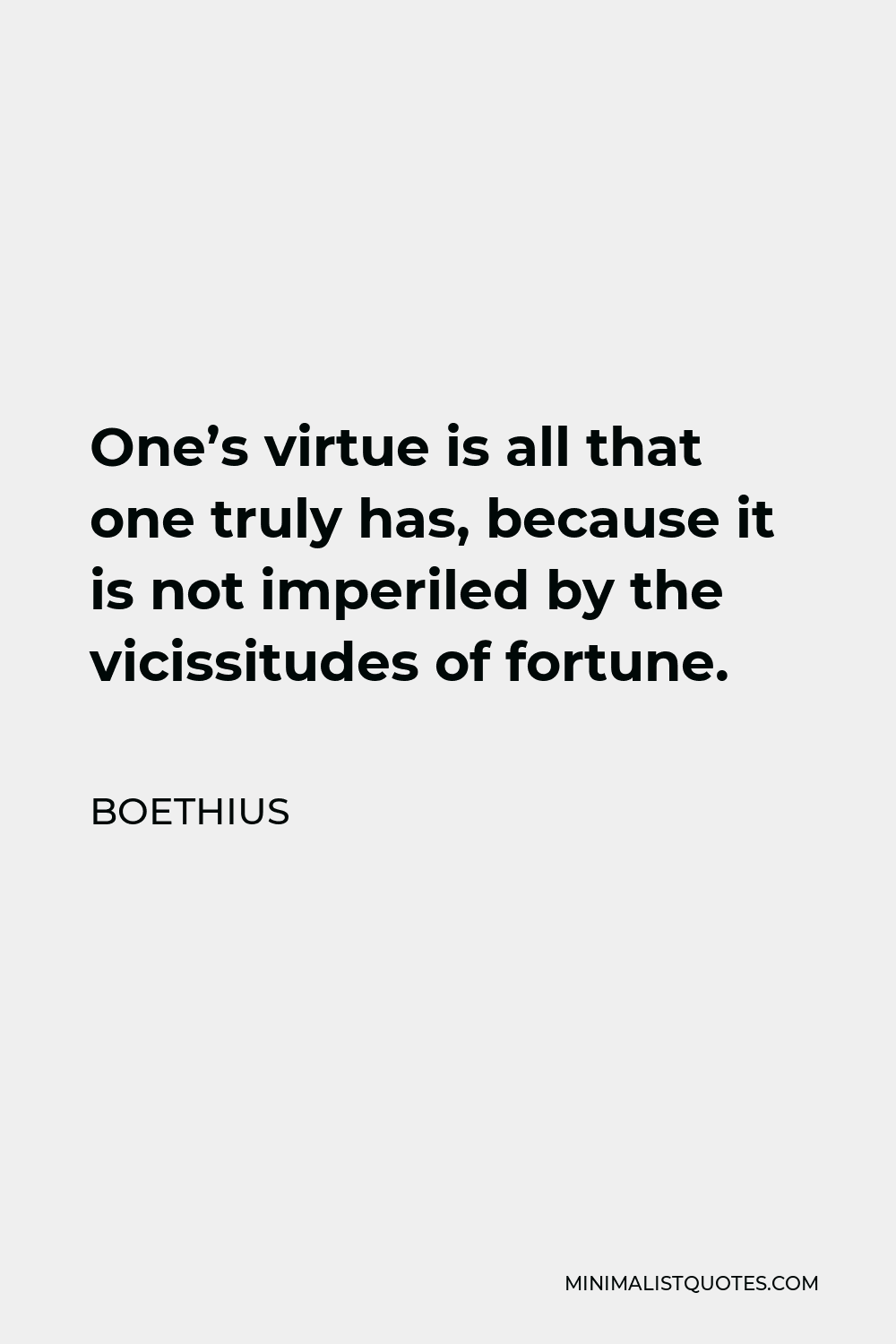All fortune is good fortune; for it either rewards, disciplines, amends, or punishes, and so is either useful or just.
BOETHIUSOne’s virtue is all that one truly has, because it is not imperiled by the vicissitudes of fortune.
More Boethius Quotes
-





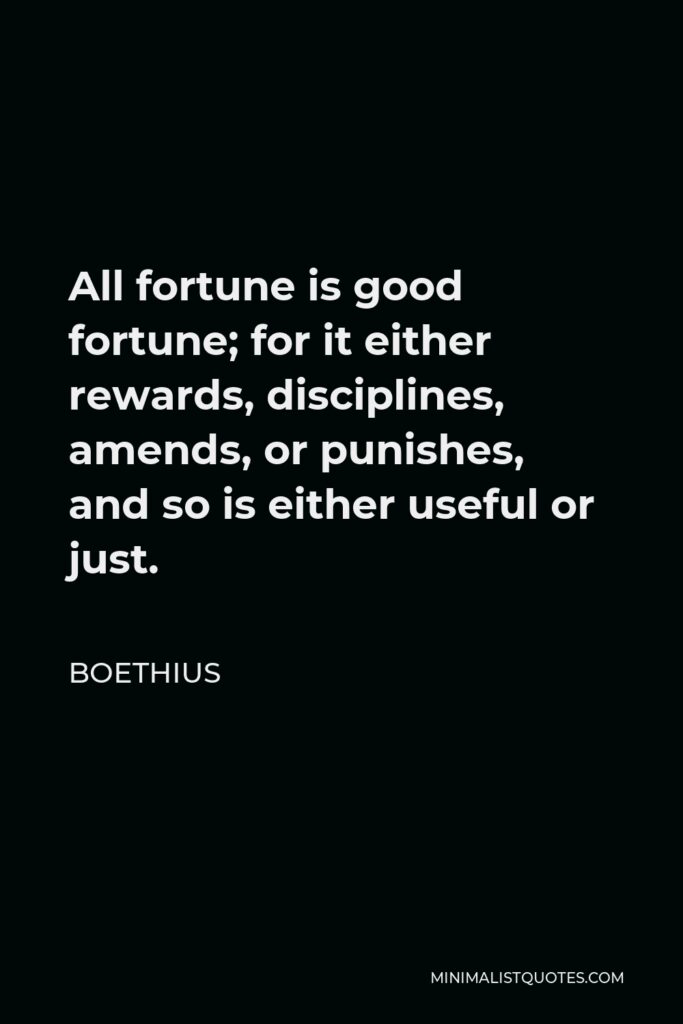

-





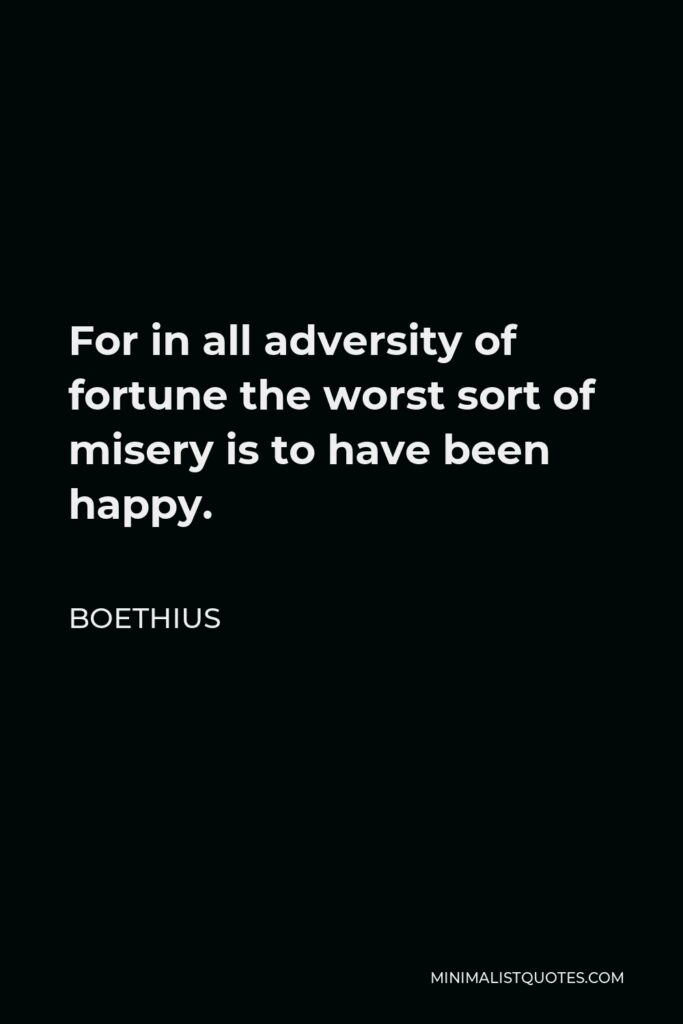

For in all adversity of fortune the worst sort of misery is to have been happy.
BOETHIUS -





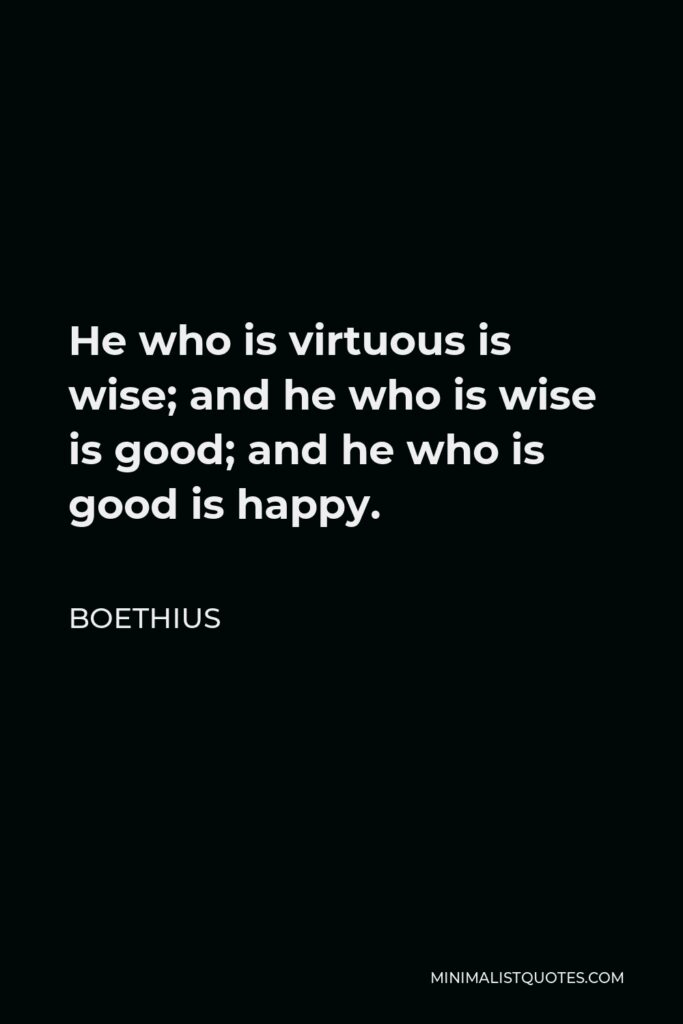

He who is virtuous is wise; and he who is wise is good; and he who is good is happy.
BOETHIUS -





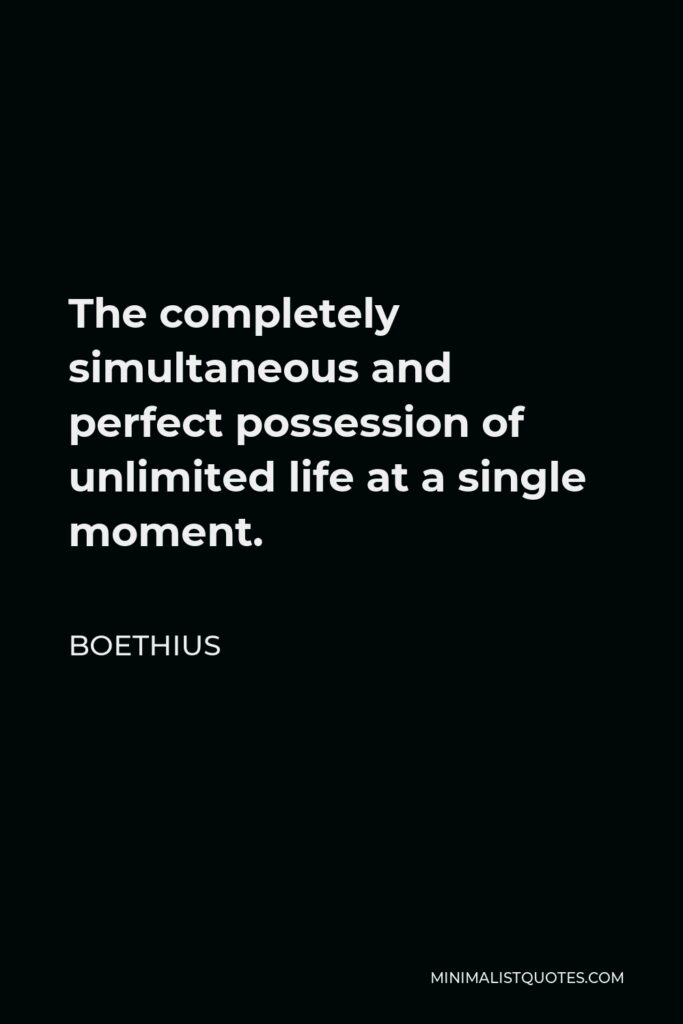

The completely simultaneous and perfect possession of unlimited life at a single moment.
BOETHIUS -





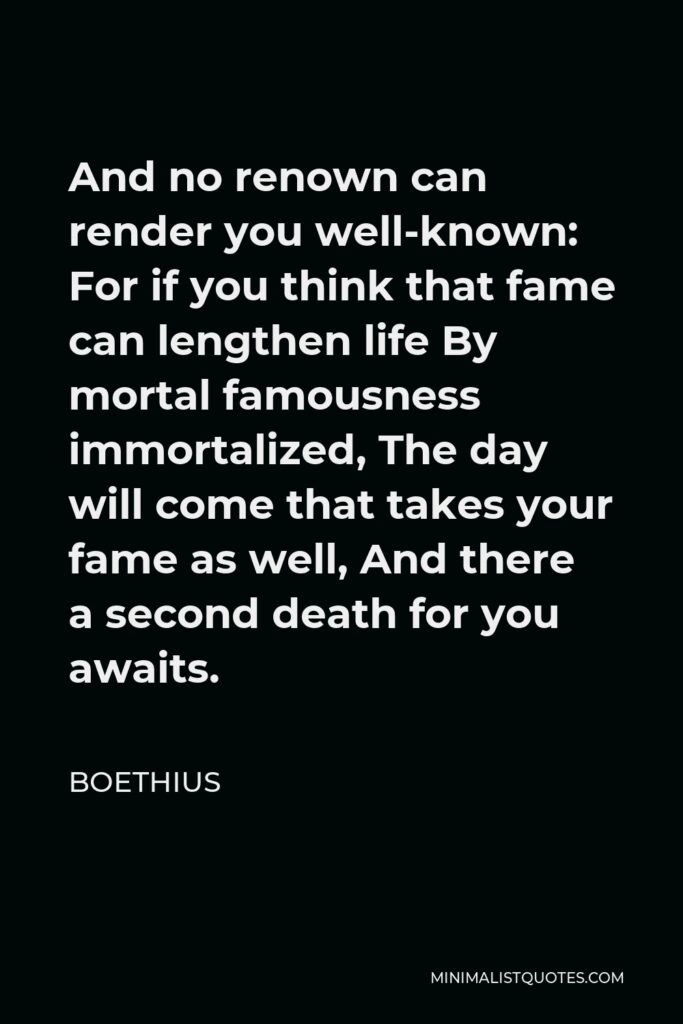

And no renown can render you well-known: For if you think that fame can lengthen life By mortal famousness immortalized, The day will come that takes your fame as well, And there a second death for you awaits.
BOETHIUS -





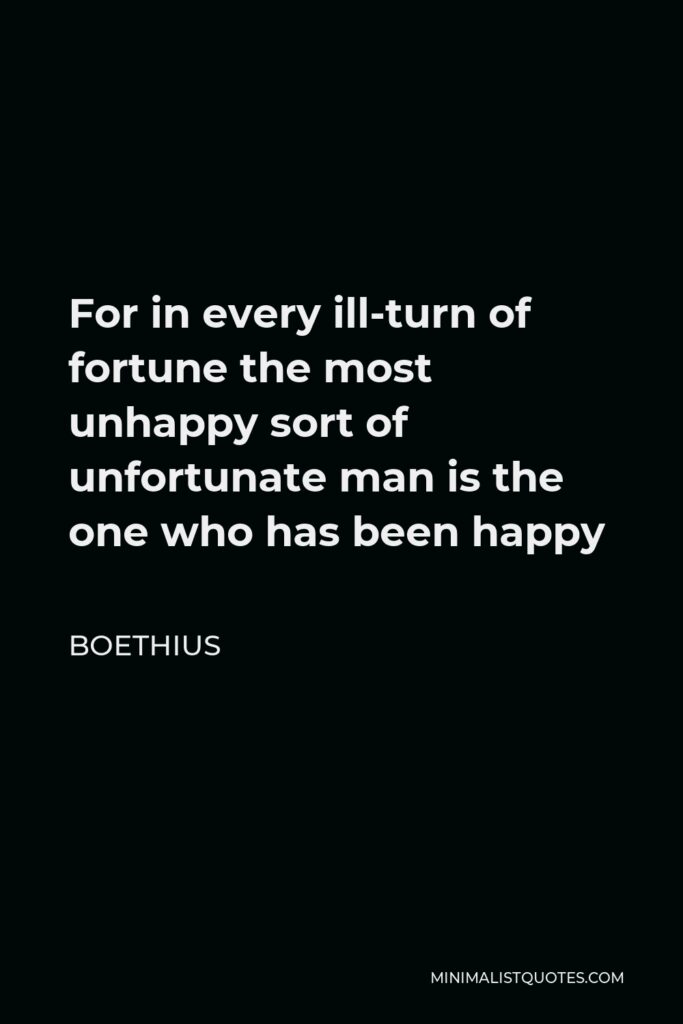

For in every ill-turn of fortune the most unhappy sort of unfortunate man is the one who has been happy
BOETHIUS -





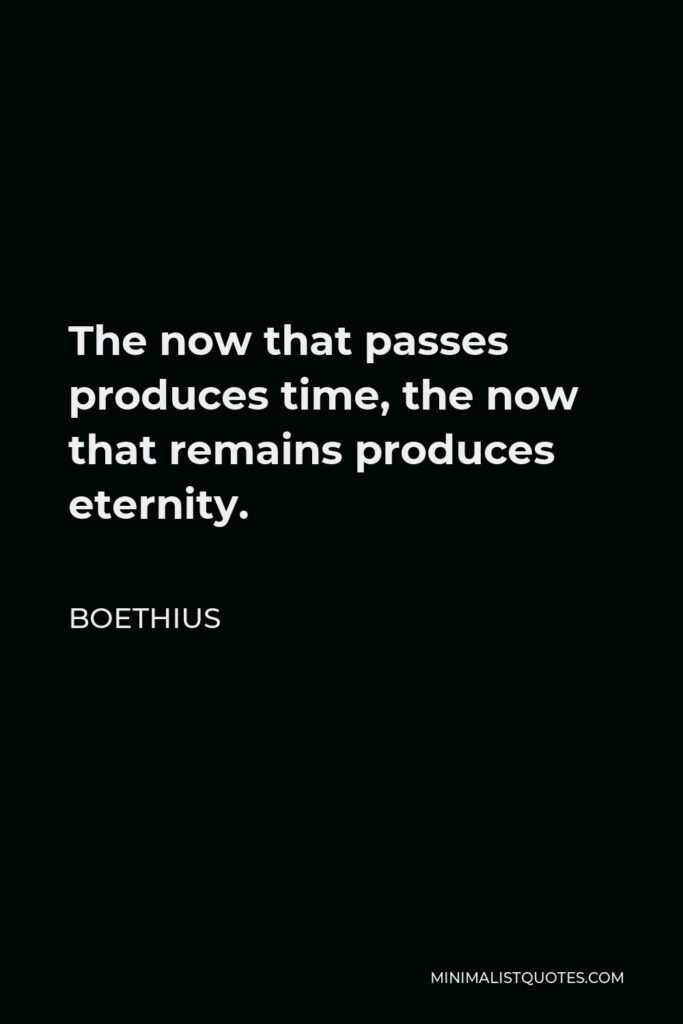

The now that passes produces time, the now that remains produces eternity.
BOETHIUS -







No man can ever be secure until he has been forsaken by Fortune.
BOETHIUS -





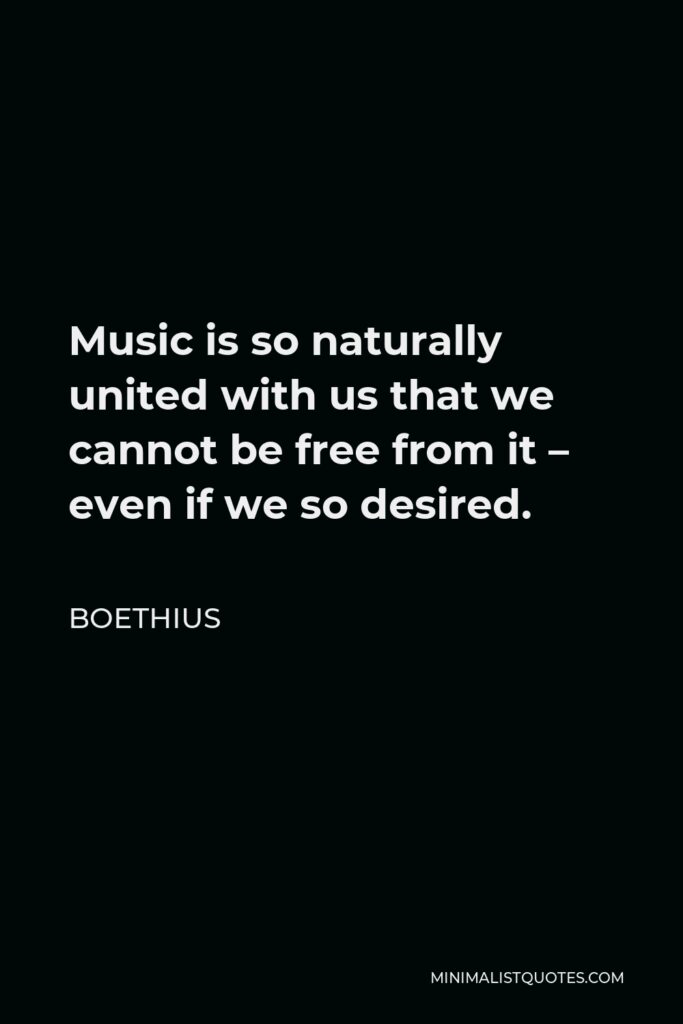

Music is so naturally united with us that we cannot be free from it – even if we so desired.
BOETHIUS -





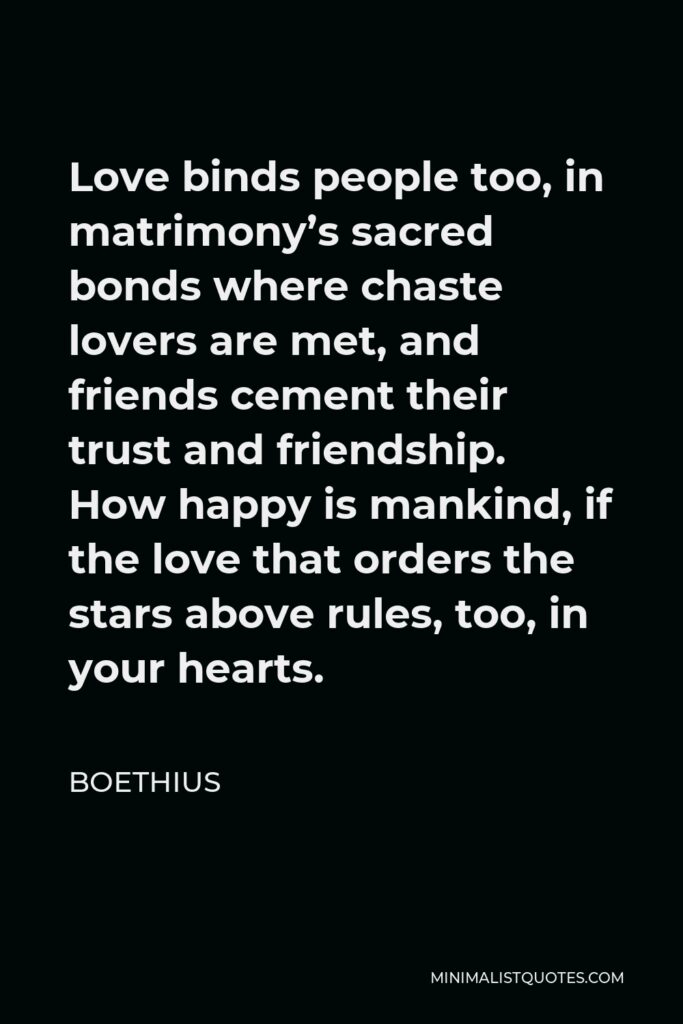

Love binds people too, in matrimony’s sacred bonds where chaste lovers are met, and friends cement their trust and friendship. How happy is mankind, if the love that orders the stars above rules, too, in your hearts.
BOETHIUS -





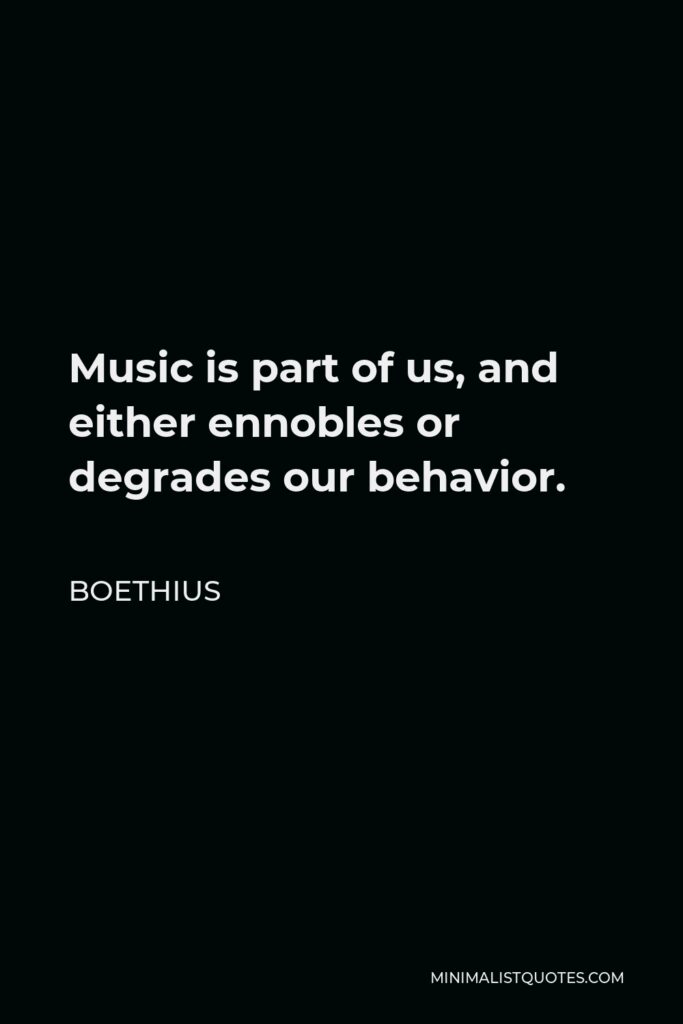

Music is part of us, and either ennobles or degrades our behavior.
BOETHIUS -





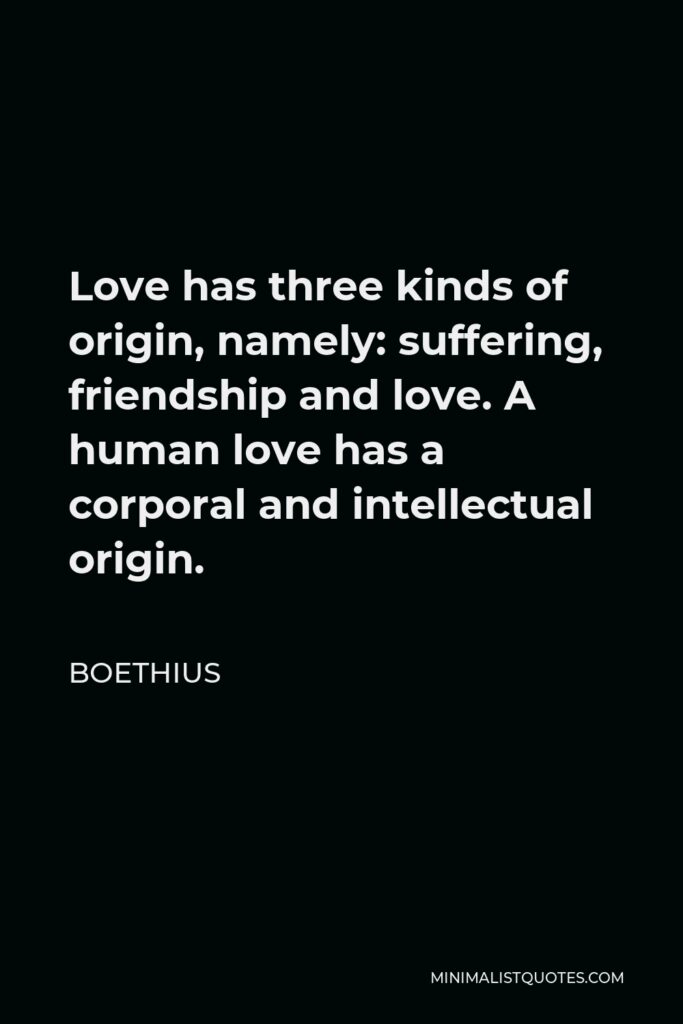

Love has three kinds of origin, namely: suffering, friendship and love. A human love has a corporal and intellectual origin.
BOETHIUS -





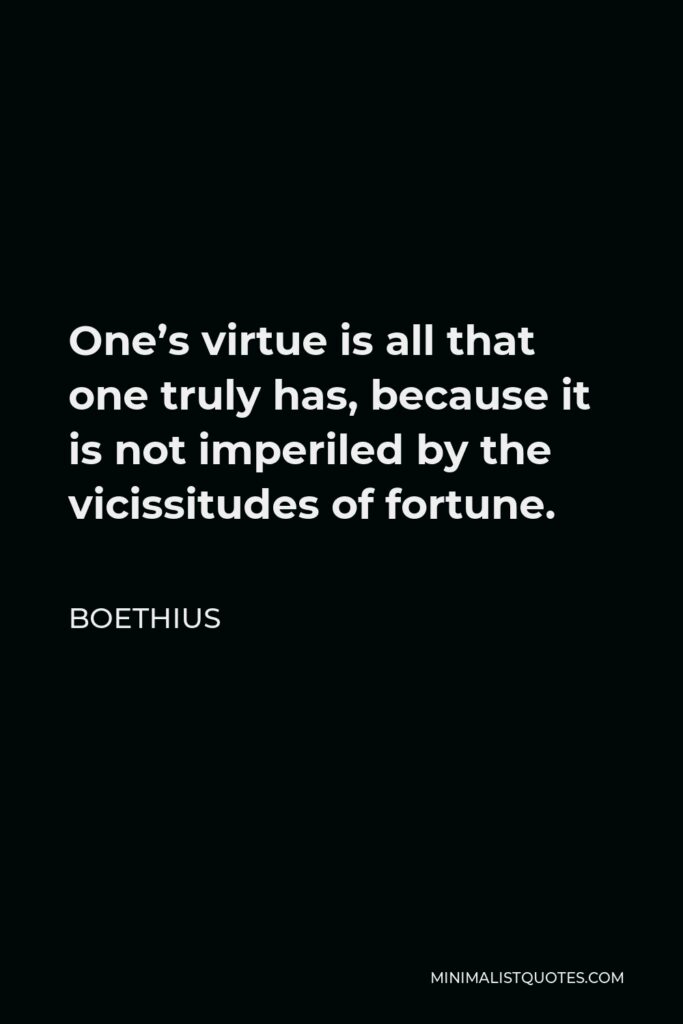

One’s virtue is all that one truly has, because it is not imperiled by the vicissitudes of fortune.
BOETHIUS -





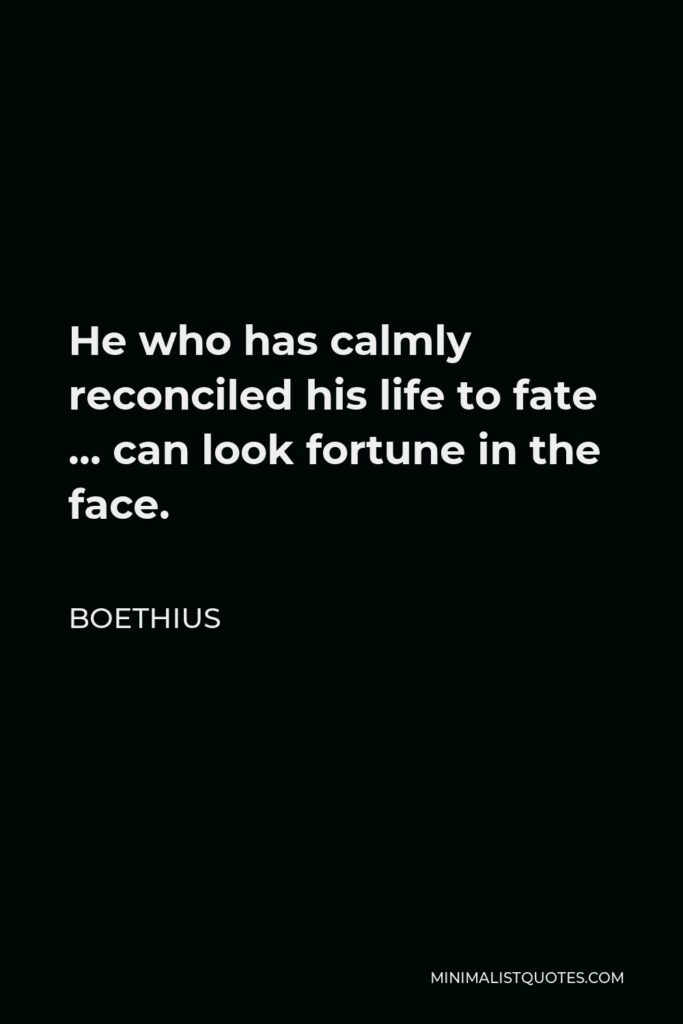

He who has calmly reconciled his life to fate … can look fortune in the face.
BOETHIUS -





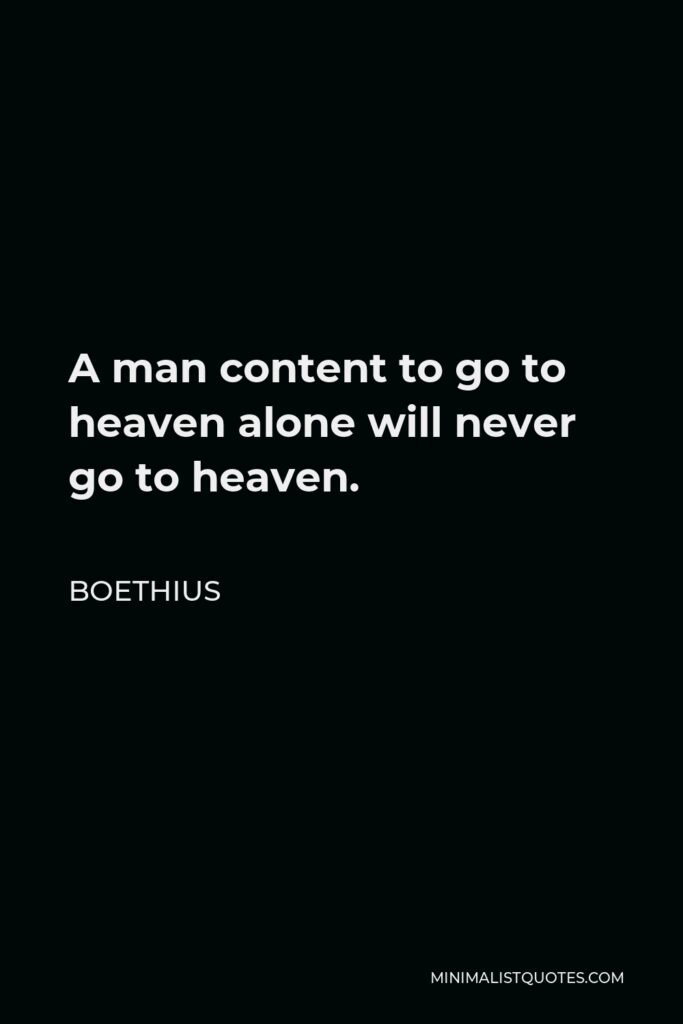

A man content to go to heaven alone will never go to heaven.
BOETHIUS -





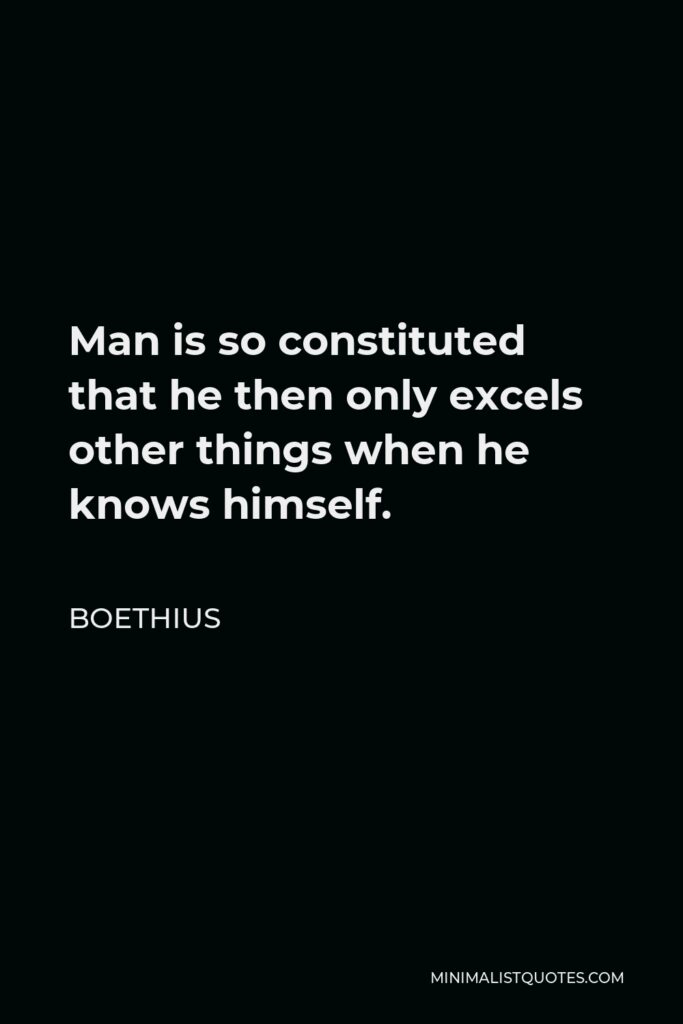

Man is so constituted that he then only excels other things when he knows himself.
BOETHIUS
